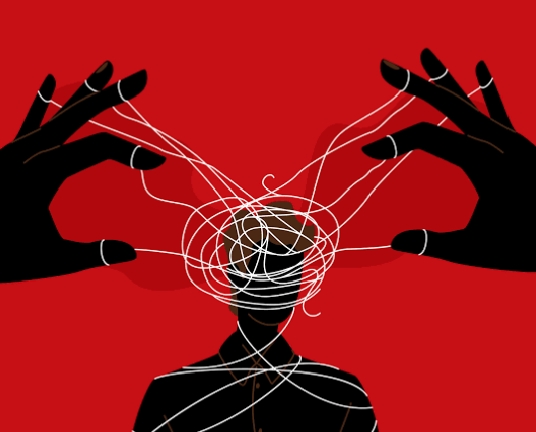A Common Misunderstanding
Recent years have seen a considerable increase in mental health awareness, but specific terms, such as narcissism, are often misused or misunderstood. While narcissism can be a part of mental health conversations, it is distinct from conditions like anxiety or depression. This article will clarify the differences between narcissism and other mental health disorders, address common misconceptions, and provide insights into how to approach these issues with sensitivity and understanding.
What is Narcissism?
Narcissism exists on a spectrum, from personality traits to a diagnosable mental health condition known as Narcissistic Personality Disorder (NPD).
Key Traits of Narcissism:
Grandiosity: Exaggerated self-importance and a need for admiration.
Lack of Empathy: Difficulty recognizing or caring about others’ emotions.
Entitlement: Believing they deserve special treatment.
Manipulative Behavior: Exploiting others for personal gain.
When Narcissism Becomes a Disorder
According to the DSM-5, NPD is described as a “need for admiration, pervasive pattern of grandiosity and lack of empathy” that interferes with relationships and daily functioning.
Statistics:
The National Institute of Mental Health states that it is less common compared to generalized mental health conditions, affecting an estimated 1% of the population with NPD.
What is Mental Health?
Social, psychological, and emotional well-being are all considered aspects of mental health. Common mental health disorders include:
Depression: Enduring depressive and disinterested feelings.
Anxiety Disorders: Excessive worry or fear.
Bipolar Disorder: Extreme mood swings ranging from highs (mania) to lows (depression).
Core Differences
Mental health disorders often stem from chemical imbalances, trauma, or genetics.
Unlike narcissism, these conditions are not characterized by manipulation or a lack of empathy.
Narcissism vs. Mental Health: Key Differences
Understanding the distinction between narcissism and mental health issues can prevent mislabeling and promote effective treatment.
Common Misconceptions
Myth 1: Narcissists Can’t Have Mental Health Issues
While narcissism is a distinct personality trait or disorder, narcissists can also experience mental health challenges like depression, anxiety, or addiction. However, they often externalize blame, making treatment complex.
Myth 2: Mental Health Disorders Make People Narcissistic
PTSD and bipolar disorder are examples of mental health conditions that might cause behaviors that mimic narcissism, such as irritability or self-focus. However, these behaviors stem from distress, not manipulation or grandiosity.
Why the Distinction Matters
For Diagnosis:
Mislabeling someone with narcissism when they have a mental health disorder can lead to incorrect treatment approaches. For example:
A person with depression may need empathy and support.
A narcissist may require boundary-setting and specific therapeutic interventions.
For Relationships:
Understanding whether someone is narcissistic or experiencing a mental health struggle helps you respond appropriately. A partner with anxiety may need reassurance, while a narcissistic partner requires firm boundaries.
How Narcissism Intersects with Mental Health
Narcissists and Depression
Narcissists can experience depression, especially when their grandiose self-image is challenged. This is sometimes called “narcissistic injury.”
Narcissists and Anxiety
Anxiety in narcissists often stems from fear of losing control or not receiving admiration. Unlike generalized anxiety, it’s tied to their need for validation.
Narcissists and Therapy
Therapy for narcissists often focuses on managing their impact on others, as true empathy-building is challenging. For mental health patients, therapy typically addresses their internal struggles.
Seeking Help: Tailored Approaches
For Narcissism:
Therapy Type: Psychodynamic or Cognitive Behavioral Therapy (CBT).
Focus: Addressing manipulative behaviors and fostering accountability.
For Mental Health:
Therapy Type: CBT, mindfulness-based therapies, or medication.
Focus: Alleviating symptoms, building coping mechanisms, and improving well-being.
Navigating Relationships with a Narcissist
If you suspect narcissistic behavior in someone close to you:
1. Set Boundaries: Protect your mental health by clearly defining acceptable behaviors.
2. Don’t Argue: Narcissists thrive on conflict and emotional reactions.
3. Seek Support: Talk to a therapist to manage the relationship effectively.
Combating Stigma
Both narcissism and mental health disorders are stigmatized. By educating yourself and others, you can:
Foster empathy for individuals with mental health struggles.
Advocate for accountability and support for those affected by narcissism.
Conclusion: Clarifying the Overlap
While narcissism and mental health are often confused, It is essential to comprehend their peculiarities to provide appropriate treatment and relationships. Narcissism centers on manipulation and control, while mental health disorders reflect internal pain and emotional struggles. You can approach both issues with clarity and compassion by recognizing these distinctions.


